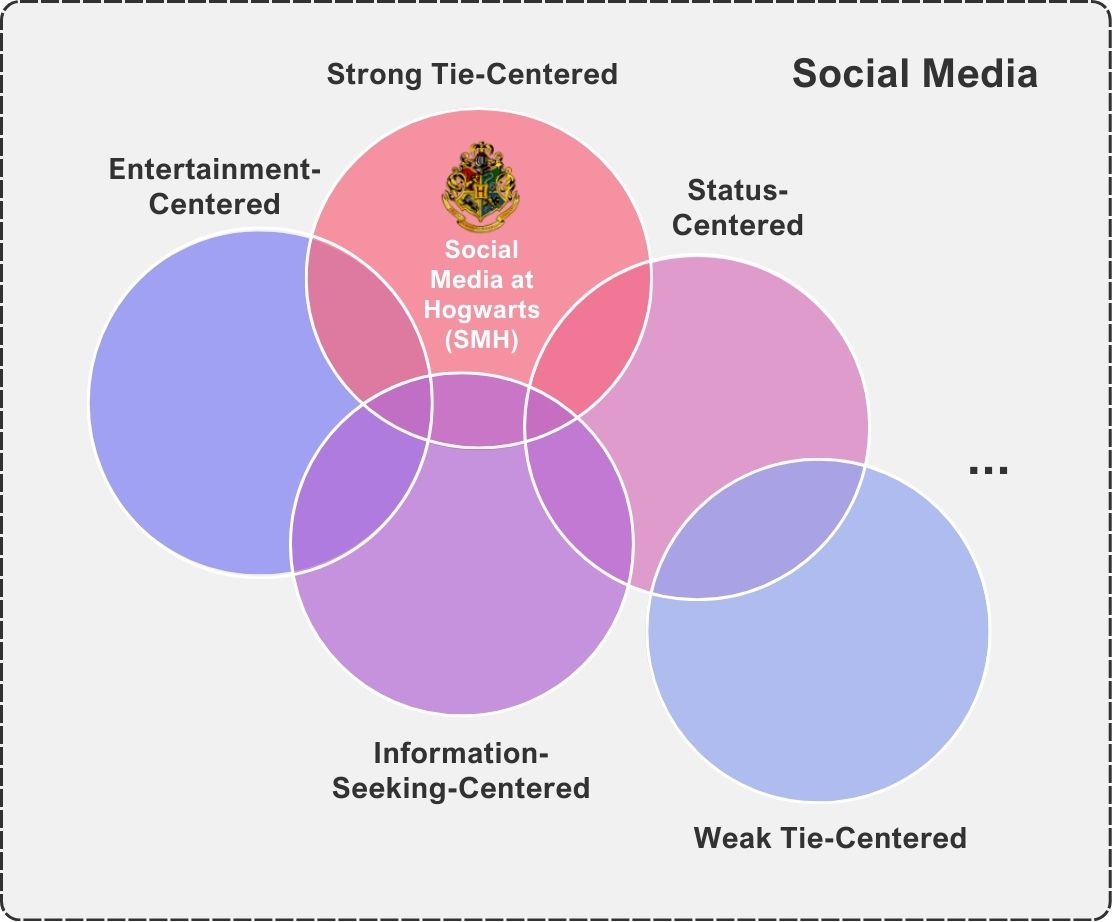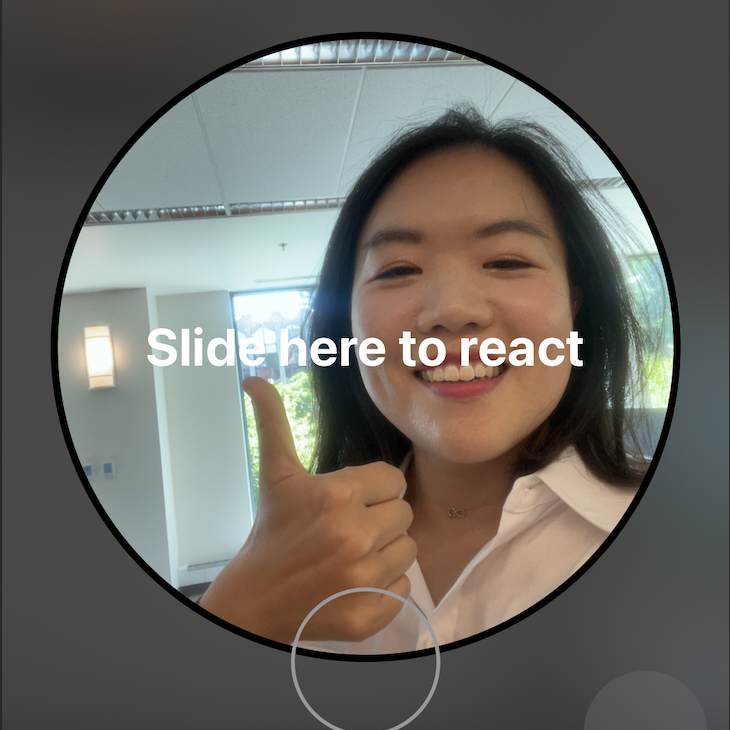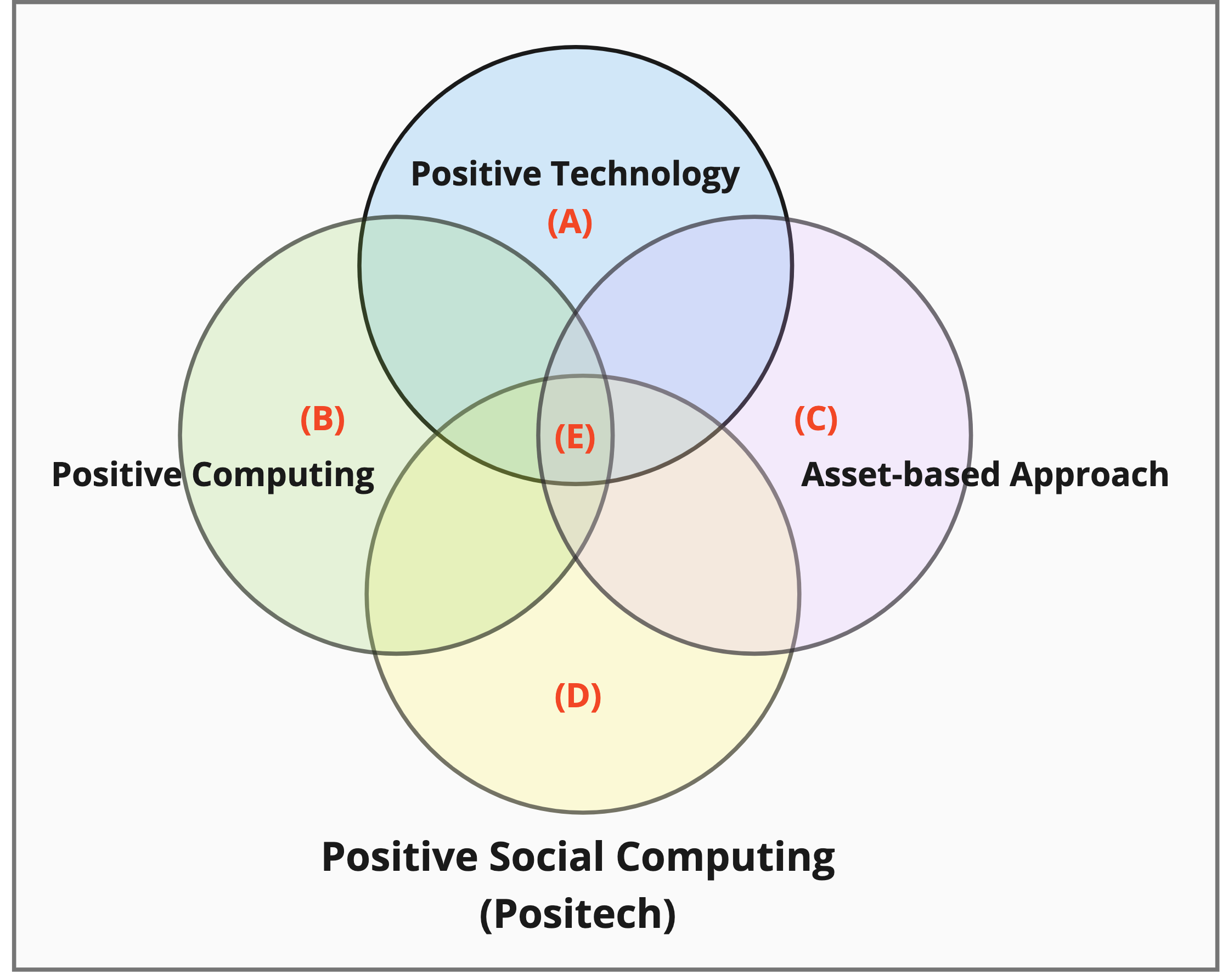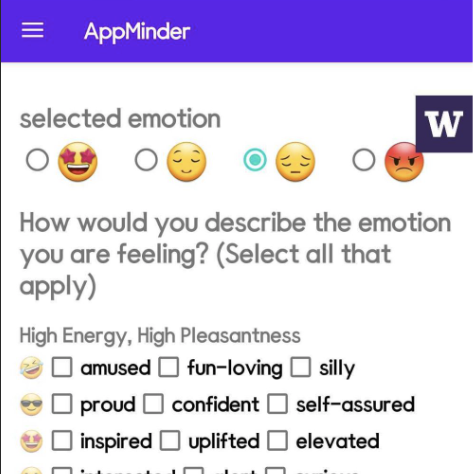publications
2025
- SOUPS 2025
 Trust-Enabled Privacy: Social Media Designs to Support Adolescent User Boundary RegulationJaeWon Kim , Robert Wolfe, Ramya Bhagirathi Subramanian, Mei-Hsuan Lee, Jessica Colnago, and Alexis HinikerIn Proceedings of the Twenty-First USENIX Conference on Usable Privacy and Security, Sep 2025
Trust-Enabled Privacy: Social Media Designs to Support Adolescent User Boundary RegulationJaeWon Kim , Robert Wolfe, Ramya Bhagirathi Subramanian, Mei-Hsuan Lee, Jessica Colnago, and Alexis HinikerIn Proceedings of the Twenty-First USENIX Conference on Usable Privacy and Security, Sep 2025Through a three-part co-design study involving 19 teens aged 13-18, we identify key barriers to effective boundary regulation on social media, including ambiguous audience expectations, social risks associated with oversharing, and the lack of design affordances that facilitate trust-building. Our findings reveal that while adolescents seek casual, frequent sharing to strengthen relationships, existing platform norms and designs often discourage such interactions, leading to withdrawal. To address these challenges, we introduce trust-enabled privacy as a design framework that recognizes trust, whether building or eroding, as central to boundary regulation. When trust is supported, boundary regulation becomes more adaptive and empowering; when it erodes, users default to self-censorship or withdrawal. We propose concrete design affordances, including guided disclosure, contextual audience segmentation, intentional engagement signaling, and trust-centered norms, to help platforms foster a more dynamic and nuanced privacy experience for teen social media users. By reframing privacy as a trust-driven process rather than a rigid control-based trade-off, this work provides empirical insights and actionable guidelines for designing social media environments that empower teens to manage their online presence while fostering meaningful social connections.
@inproceedings{kim2025trust, title = {Trust-Enabled Privacy: Social Media Designs to Support Adolescent User Boundary Regulation}, author = {Kim, JaeWon and Wolfe, Robert and Bhagirathi Subramanian, Ramya and Lee, Mei-Hsuan and Colnago, Jessica and Hiniker, Alexis}, booktitle = {Proceedings of the Twenty-First USENIX Conference on Usable Privacy and Security}, publisher = {USENIX Association}, address = {USA}, number = {Article 27}, pages = {495--514}, series = {SOUPS '25}, month = sep, year = {2025}, doi = {10.5555/3767870.3767897}, isbn = {9781939133519}, language = {en}, } - arXiv
 Social Media Should Feel Like Minecraft, Not Instagram: 3D Gamer Youth Visions for Meaningful Social Connections through Fictional InquiryJaeWon Kim , Hyunsung Cho, Fannie Liu, and Alexis HinikerarXiv e-prints, Sep 2025
Social Media Should Feel Like Minecraft, Not Instagram: 3D Gamer Youth Visions for Meaningful Social Connections through Fictional InquiryJaeWon Kim , Hyunsung Cho, Fannie Liu, and Alexis HinikerarXiv e-prints, Sep 2025We investigate youth visions for ideal remote social interactions, drawing on co-design interviews with 23 participants (aged 15-24) experienced with 3D gaming environments. Using a Fictional Inquiry (FI) method set in the Harry Potter universe, this research reveals that young people desire social media that functions more like immersive, navigable shared social spaces. Across these interviews, participants identified six key priorities for meaningful social connection over social media: intuitive social navigation, shared collaborative experiences, communal environments fostering close relationships, flexible self-presentation, intentional engagement, and playful social mechanics. We introduce the spatial integrity framework, a set of four interrelated design principles: spatial presence, spatial composition, spatial configuration, and spatial depth. Together, these principles outline how online spaces can be designed to feel more like meaningful environments, spaces where relationships can grow through shared presence, movement, and intentional interaction. Participants also described the FI process itself as meaningful, not only for generating new ideas but for empowering them to imagine and shape the future of social media.
@article{kim2025hogwarts, title = {Social Media Should Feel Like Minecraft, Not Instagram: 3D Gamer Youth Visions for Meaningful Social Connections through Fictional Inquiry}, author = {Kim, JaeWon and Cho, Hyunsung and Liu, Fannie and Hiniker, Alexis}, year = {2025}, journal = {arXiv e-prints}, pages = {arXiv: 2501.09951}, eprint = {2502.06696}, archiveprefix = {arXiv}, primaryclass = {cs.HC}, } - arXiv
 Discord’s Design Encourages “Third Place” Social Media ExperiencesJaeWon Kim , Thea Klein-Balajee, Ryan M Kelly, and Alexis HinikerarXiv e-prints, Jan 2025
Discord’s Design Encourages “Third Place” Social Media ExperiencesJaeWon Kim , Thea Klein-Balajee, Ryan M Kelly, and Alexis HinikerarXiv e-prints, Jan 2025In light of the diminishing presence of physical third places – informal gathering spaces essential for social connection – this study explores how the social media platform Discord fosters third-place experiences. Drawing on Oldenburg’s conceptual framework, we analyze how Discord’s design elements support the creation of virtual third places that foster both dyadic and community-based relationships. Through 25 semi-structured interviews with active Discord users, we identified 21 design elements aligned with Oldenburg’s third-place characteristics. These elements cluster around four core principles: providing themed spaces for repeated interactions, supporting user autonomy and customization, facilitating mutually engaging activities, and enabling casual, low-pressure interactions. This work contributes to understanding how intentional platform design can cultivate virtual spaces that support meaningful social connections. The findings have implications for designing future social technologies that can help address growing concerns about social isolation in an increasingly digital world.
@article{kim2025discord, title = {Discord's Design Encourages ``Third Place'' Social Media Experiences}, author = {Kim, JaeWon and Klein-Balajee, Thea and Kelly, Ryan M and Hiniker, Alexis}, journal = {arXiv e-prints}, pages = {arXiv: 2501.09951}, month = jan, year = {2025}, eprint = {2501.09951}, } - CSCW ’25
 Privacy as Social Norm: Systematically Reducing Dysfunctional Privacy Concerns on Social MediaJaeWon Kim , Soobin Cho*, Robert Wolfe*, Jishnu Hari Nair, and Alexis HinikerProc. ACM Hum.-Comput. Interact., May 2025
Privacy as Social Norm: Systematically Reducing Dysfunctional Privacy Concerns on Social MediaJaeWon Kim , Soobin Cho*, Robert Wolfe*, Jishnu Hari Nair, and Alexis HinikerProc. ACM Hum.-Comput. Interact., May 2025Through co-design interviews (N=19) and a design evaluation survey (N=136) with U.S. teens ages 13-18, we investigated teens’ privacy management on social media. Our study revealed that 28% of teens with public accounts and 15% with private accounts experience "dysfunctional fear," that is, fear that diminishes their quality of life or paralyzes them from taking necessary precautions. These fears fall into three categories: fear of uncontrolled audience reach, fear of online hostility, and fear of personal privacy missteps. While current approaches often emphasize individual vigilance and restrictive measures, our findings show this can paradoxically lead teens to either withdraw from beneficial social interactions or resign themselves to accept privacy violations, viewing them as inevitable. Drawing on teen input, we developed and evaluated ten design prototypes that emphasize empowerment over fear, system-wide explicit emphasis on privacy, clear privacy norms, and flexible controls. Survey results indicate teens perceive these approaches as effectively reducing privacy concerns while preserving social benefits. Our findings suggest that platforms will be more likely to protect teens’ privacy and less likely to manufacture unnecessary fear if they include designs that minimize the impact on other users, have low trade-offs with existing features, require minimal user effort, and function independently of community behavior. Such designs include: 1) alerting users about potentially unintentional personal information disclosure and 2) following up on user reports.
@article{kim2025dysfunctionalfear, title = {Privacy as Social Norm: Systematically Reducing Dysfunctional Privacy Concerns on Social Media}, author = {Kim, JaeWon and Cho, Soobin and Wolfe, Robert and Nair, Jishnu Hari and Hiniker, Alexis}, issue_date = {May 2025}, year = {2025}, publisher = {Association for Computing Machinery}, address = {New York, NY, USA}, volume = {9}, number = {2}, doi = {10.1145/3711049}, journal = {Proc. ACM Hum.-Comput. Interact.}, month = may, articleno = {CSCW151}, numpages = {39}, keywords = {adolescents, fear, privacy, social media, social norm, teens}, } - CSCW ’25 Workshop
 Design for Hope: Cultivating Deliberate Hope in the Face of Complex Societal ChallengesJaeWon Kim , Jiaying "Lizzy" Liu, Lindsay Popowski, Cassidy Pyle, Sowmya Somanath, Hua Shen, Casey Fiesler, Gillian R. Hayes, Alexis Hiniker, Wendy Ju, Florian "Floyd" Mueller, Ahmer Arif, and Yasmine KotturiIn Companion Publication of the 2025 Conference on Computer-Supported Cooperative Work and Social Computing, Oct 2025
Design for Hope: Cultivating Deliberate Hope in the Face of Complex Societal ChallengesJaeWon Kim , Jiaying "Lizzy" Liu, Lindsay Popowski, Cassidy Pyle, Sowmya Somanath, Hua Shen, Casey Fiesler, Gillian R. Hayes, Alexis Hiniker, Wendy Ju, Florian "Floyd" Mueller, Ahmer Arif, and Yasmine KotturiIn Companion Publication of the 2025 Conference on Computer-Supported Cooperative Work and Social Computing, Oct 2025Design has the potential to cultivate hope in the face of complex societal challenges, especially those central to CSCW research. These challenges are often addressed through efforts aimed at harm reduction and prevention – essential but sometimes limiting approaches that can unintentionally narrow our collective sense of what is possible. This one-day, in-person workshop builds on the 1st Positech Workshop at CSCW 2024 by offering practical ways to move beyond reactive problem-solving toward building capacity for proactive goal setting and generating pathways forward. We explore how collaborative and reflective design methodologies can help research communities navigate uncertainty, expand possibilities, and foster meaningful change. By connecting design thinking with hope theory, which frames hope as the interplay of "goal-directed," "pathways," and "agentic" thinking, we will examine how researchers might chart new directions in the face of complexity and constraint. Through hands-on activities including problem reframing, building a shared taxonomy of design methods that align with hope theory, and reflecting on what it means to sustain hopeful research trajectories, participants will develop strategies to embed a deliberately hopeful approach into their research.
@inproceedings{kim2025positech, title = {Design for Hope: Cultivating Deliberate Hope in the Face of Complex Societal Challenges}, author = {Kim, JaeWon and Liu, Jiaying "Lizzy" and Popowski, Lindsay and Pyle, Cassidy and Somanath, Sowmya and Shen, Hua and Fiesler, Casey and Hayes, Gillian R. and Hiniker, Alexis and Ju, Wendy and Mueller, Florian "Floyd" and Arif, Ahmer and Kotturi, Yasmine}, booktitle = {Companion Publication of the 2025 Conference on Computer-Supported Cooperative Work and Social Computing}, publisher = {ACM}, address = {New York, NY, USA}, pages = {112--115}, month = oct, year = {2025}, doi = {10.1145/3715070.3748287}, language = {en}, }
2024
- CSCW ’24
 “Sharing, Not Showing Off”: How BeReal Approaches Authentic Self-Presentation on Social Media Through Its DesignProceedings of the ACM on Human-Computer Interaction, Nov 2024
“Sharing, Not Showing Off”: How BeReal Approaches Authentic Self-Presentation on Social Media Through Its DesignProceedings of the ACM on Human-Computer Interaction, Nov 2024Adolescents are particularly vulnerable to the pressures created by social media, such as heightened self-consciousness and the need for extensive self-presentation. In this study, we investigate how BeReal, a social media platform designed to counter some of these pressures, influences adolescents’ self-presentation behaviors. We interviewed 29 users aged 13-18 to understand their experiences with BeReal. We found that BeReal’s design focuses on spontaneous sharing, including randomly timed daily notifications and reciprocal posting, discourages staged posts, encourages careful curation of the audience, and reduces pressure on self-presentation. The space created by BeReal offers benefits such as validating an unfiltered life and reframing social comparison, but its approach to self-presentation is sometimes perceived as limited or unappealing and, at times, even toxic. Drawing on this empirical data, we propose design guidelines for platforms that support authentic self-presentation while fostering reciprocity and expanding beyond spontaneous photo-sharing. These guidelines aim to enable users to portray themselves more comprehensively and accurately, ultimately supporting teens’ developmental needs, particularly in building authentic relationships.
@article{kim2024bereal, title = {``Sharing, Not Showing Off'': How {BeReal} Approaches Authentic Self-Presentation on Social Media Through Its Design}, author = {Kim, JaeWon and Wolfe, Robert and Chordia, Ishita and Davis, Katie and Hiniker, Alexis}, journal = {Proceedings of the ACM on Human-Computer Interaction}, publisher = {Association for Computing Machinery (ACM)}, volume = {8}, number = {CSCW2}, pages = {1--32}, month = nov, year = {2024}, doi = {10.1145/3686909}, issn = {2573-0142}, language = {en}, } - CSCW ’24 Workshop
 Envisioning new futures of positive social technology: Beyond paradigms of fixing, protecting, and preventingJaeWon Kim , Lindsay Popowski, Anna Fang, Cassidy Pyle, Guo Freeman, Ryan M Kelly, Angela Y. Lee, Fannie Liu, Angela D R Smith, Alexandra To, and Amy X. ZhangIn Companion Publication of the 2024 Conference on Computer-Supported Cooperative Work and Social Computing, Nov 2024
Envisioning new futures of positive social technology: Beyond paradigms of fixing, protecting, and preventingJaeWon Kim , Lindsay Popowski, Anna Fang, Cassidy Pyle, Guo Freeman, Ryan M Kelly, Angela Y. Lee, Fannie Liu, Angela D R Smith, Alexandra To, and Amy X. ZhangIn Companion Publication of the 2024 Conference on Computer-Supported Cooperative Work and Social Computing, Nov 2024Social technology research today largely focuses on mitigating the negative impacts of technology and, therefore, often misses the potential of technology to enhance human connections and well-being. However, we see a potential to shift towards a holistic view of social technology’s impact on human flourishing. We introduce Positive Social Technology (Positech) , a framework that shifts emphasis toward leveraging social technologies to support and augment human flourishing. This workshop is organized around three themes relevant to Positech: 1) “Exploring Relevant and Adjacent Research” to define and widen the Positech scope with insights from related fields, 2) “Projecting the Landscape of Positech” for participants to outline the domain’s key aspects and 3) “Envisioning the Future of Positech,” anchored around strategic planning towards a sustainable research community. Ultimately, this workshop will serve as a platform to shift the narrative of social technology research towards a more positive, human-centric approach. It will foster research that goes beyond fixing technologies to protect humans from harm, to also pursue enriching human experiences and connections through technology.
@inproceedings{kim2024positech, title = {Envisioning new futures of positive social technology: Beyond paradigms of fixing, protecting, and preventing}, author = {Kim, JaeWon and Popowski, Lindsay and Fang, Anna and Pyle, Cassidy and Freeman, Guo and Kelly, Ryan M and Lee, Angela Y. and Liu, Fannie and Smith, Angela D R and To, Alexandra and Zhang, Amy X.}, booktitle = {Companion Publication of the 2024 Conference on Computer-Supported Cooperative Work and Social Computing}, publisher = {ACM}, address = {New York, NY, USA}, pages = {701--704}, month = nov, year = {2024}, doi = {10.1145/3678884.3681833}, } - IDC ’24
 “I Just Don’t Care Enough To Be Interested”: Teens’ Moment-By-Moment Experiences on InstagramRotem Landesman, Jina Yoon, JaeWon Kim , Daniela E Munoz Lopez, Lucia Magis-Weinberg, Alexis Hiniker, and Katie DavisJun 2024
“I Just Don’t Care Enough To Be Interested”: Teens’ Moment-By-Moment Experiences on InstagramRotem Landesman, Jina Yoon, JaeWon Kim , Daniela E Munoz Lopez, Lucia Magis-Weinberg, Alexis Hiniker, and Katie DavisJun 2024@article{Landesman-2024-IInstagram-j, title = {``I Just Don't Care Enough To Be Interested'': Teens' Moment-By-Moment Experiences on Instagram}, author = {Landesman, Rotem and Yoon, Jina and Kim, JaeWon and Munoz Lopez, Daniela E and Magis-Weinberg, Lucia and Hiniker, Alexis and Davis, Katie}, booktitle = {Proceedings of the 23rd Annual ACM Interaction Design and Children Conference}, publisher = {ACM}, address = {New York, NY, USA}, month = jun, year = {2024}, doi = {10.1145/3628516.3655812}, } - DIS ’24
 Tuning into the World: Designing Community Safety Technologies to Reduce Dysfunctional Fear of CrimeIshita Chordia, JaeWon Kim , Zhuoyan Liu, Hayley Park, Lesley Garrett, Sheena Erete, Christopher A Le Dantec, Jason Yip Yip, and Alexis HinikerProceedings of the 2024 ACM Conference on Designing Interactive Systems, Jul 2024
Tuning into the World: Designing Community Safety Technologies to Reduce Dysfunctional Fear of CrimeIshita Chordia, JaeWon Kim , Zhuoyan Liu, Hayley Park, Lesley Garrett, Sheena Erete, Christopher A Le Dantec, Jason Yip Yip, and Alexis HinikerProceedings of the 2024 ACM Conference on Designing Interactive Systems, Jul 2024@article{chordia2024-safety, title = {Tuning into the World: Designing Community Safety Technologies to Reduce Dysfunctional Fear of Crime}, author = {Chordia, Ishita and Kim, JaeWon and Liu, Zhuoyan and Park, Hayley and Garrett, Lesley and Erete, Sheena and A Le Dantec, Christopher and Yip, Jason Yip and Hiniker, Alexis}, journal = {Proceedings of the 2024 ACM Conference on Designing Interactive Systems}, publisher = {ACM}, address = {New York, NY, USA}, pages = {3097--3116}, month = jul, year = {2024}, doi = {10.1145/3643834.3661578}, }